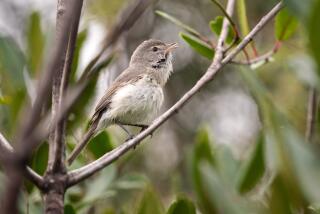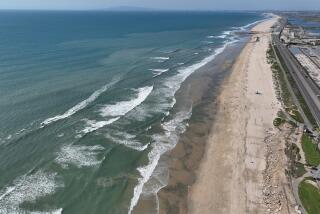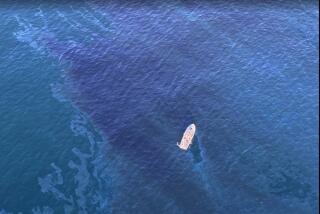SPECIAL REPORT: Oil on the Beach : MANNING THE BARRICADES : GREG GERSTENBERG : State Fish and Game Department wildlife biologist is in charge of rescue center to accommodate 400 birds.
- Share via
A year ago, state wildlife biologist Greg Gerstenberg was taking classes on oil spills; now he’s in the middle of his first one.
Gerstenberg, who took the classes as a requirement for his job with the State Department of Fish and Game, is in charge of organizing a rescue center to accommodate 400 birds. He says that he has been a little nervous.
“No matter how much training and preparation you go through, you never become quite ready for this,” said Gerstenberg, wildlife refuge manager of the Upper Newport Bay Ecological Reserve. “I want to make sure I’m doing all I can for the birds and other wildlife. And no matter how much I’ve done, there’s always much more I know I have to do.”
Touring the Huntington Beach rescue center--normally a garage for lifeguards--Gerstenberg’s voice dropped to a whisper amid the squawks of birds being fed and cleaned.
“They’re scared right now,” Gerstenberg said. “We keep as quiet as possible not to frighten them. They don’t know where they are.”
The birds are kept in small wooden pens and covered with blankets for warmth. Movement frightens them, so the garage is darkened. The only light comes from low-watt bulbs and heating lamps to keep the temperature constant. Volunteers or biologists tube-feed the birds a high-protein liquid to prevent dehydration.
There hasn’t been enough time to become angry about the oil spill, Gerstenberg said.
“I knew the spill was going to happen one day,” he said. “You just didn’t know when or where it was going to happen. Every time, you drive down the coast and look at the oil rigs or tankers in the waters, you can’t help but think a spill was inevitable.”
More to Read
Sign up for Essential California
The most important California stories and recommendations in your inbox every morning.
You may occasionally receive promotional content from the Los Angeles Times.













